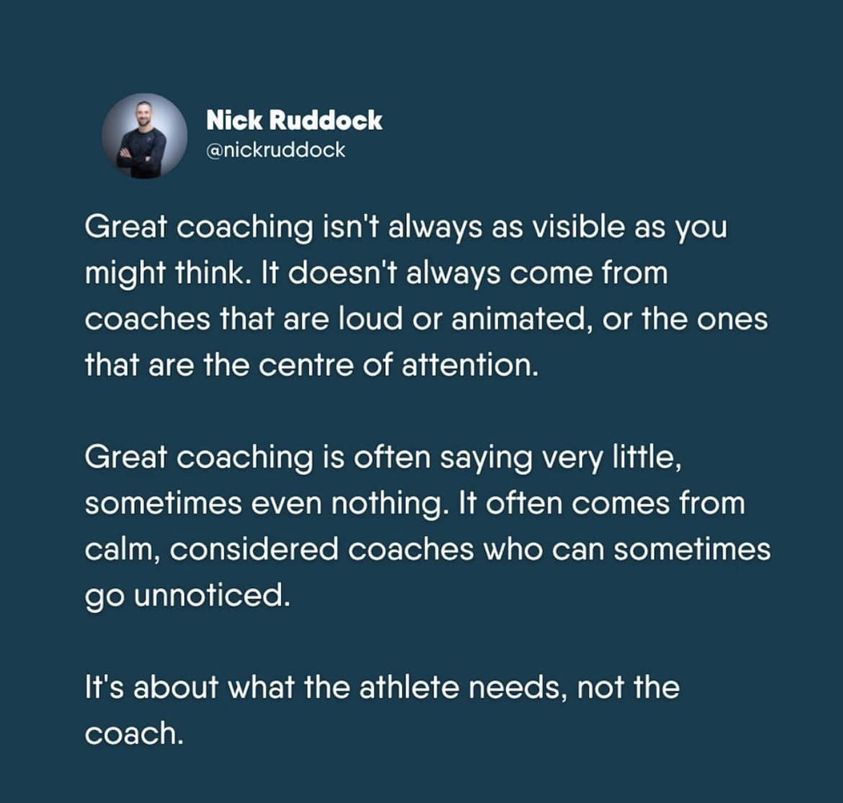Here’s something sometime coaching blogger Alexis Lebedew shared via social media that caught my attention.

This is a big lesson for all coaches, and even more for people who would seek to judge them.
Effective coaching has nothing to do with being loud or visible. I’m not suggesting it’s bad to be boisterous. We all need to coach to our own personalities.
Ultimately, however, we need to keep in mind that a coach’s role is inherently one of service to others. It’s not about us. It’s about the athletes and the team. As such, all of our communication must be in service to their development and performance. Likewise with how we carry and present ourselves. Keep in mind that we are always under observation (if not being recorded).
That’s why yelling at them because we’re mad is probably not a great idea. It tends to be more about us and our feelings than them.
Similarly, talking excessively in practice is counter-productive. Say what needs to be said and let them get on with things.
We all have an ego. Nothing wrong with that. In a coaching role, though, we have to keep it in check as servant-leaders.
That said, there are times when putting ourselves out front as the center of attention is the way to go. This is particularly true when times are difficult. Better for us to take the heat than the players, especially when we’re talking about young people less able to deal with the external criticism. And even the more mature athletes appreciate the buffer and respect the coach who takes some of the hits they’d receive otherwise.